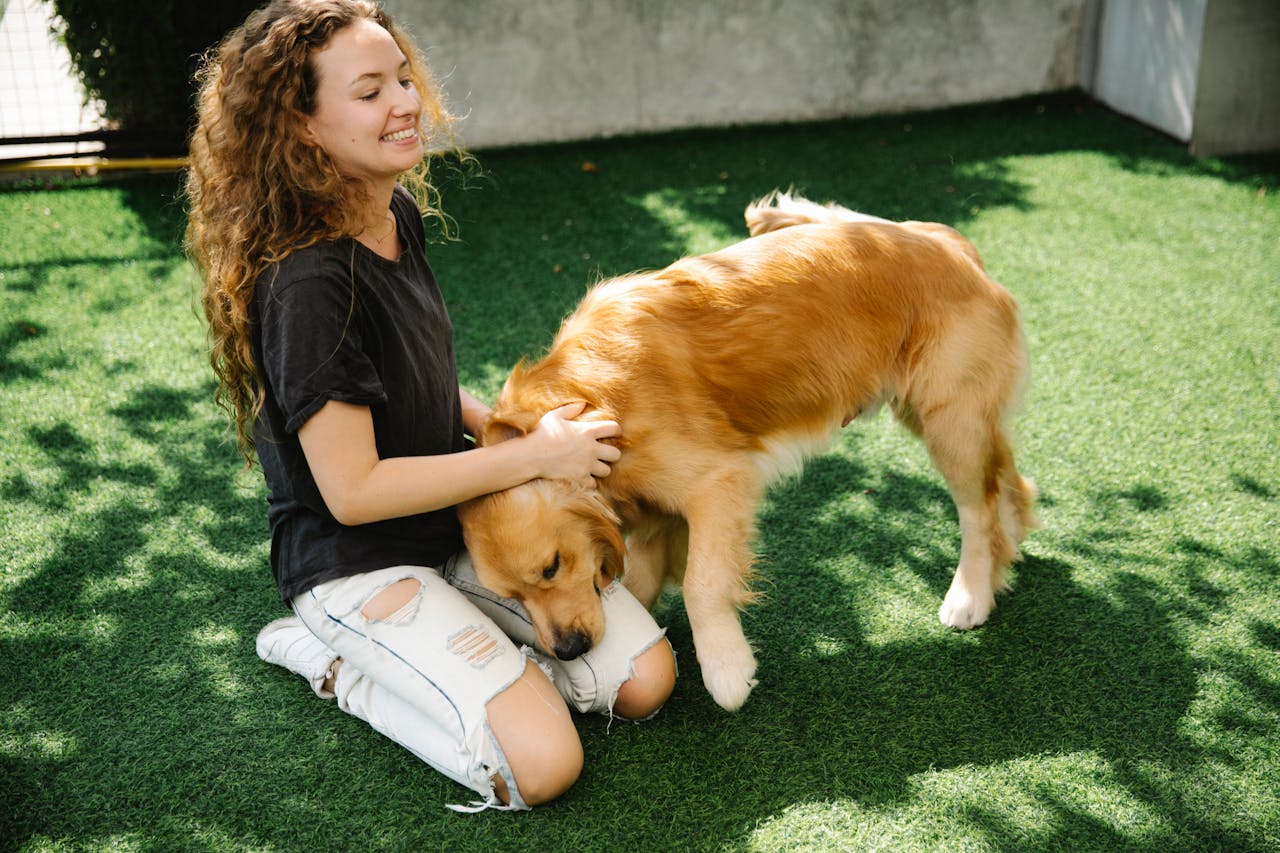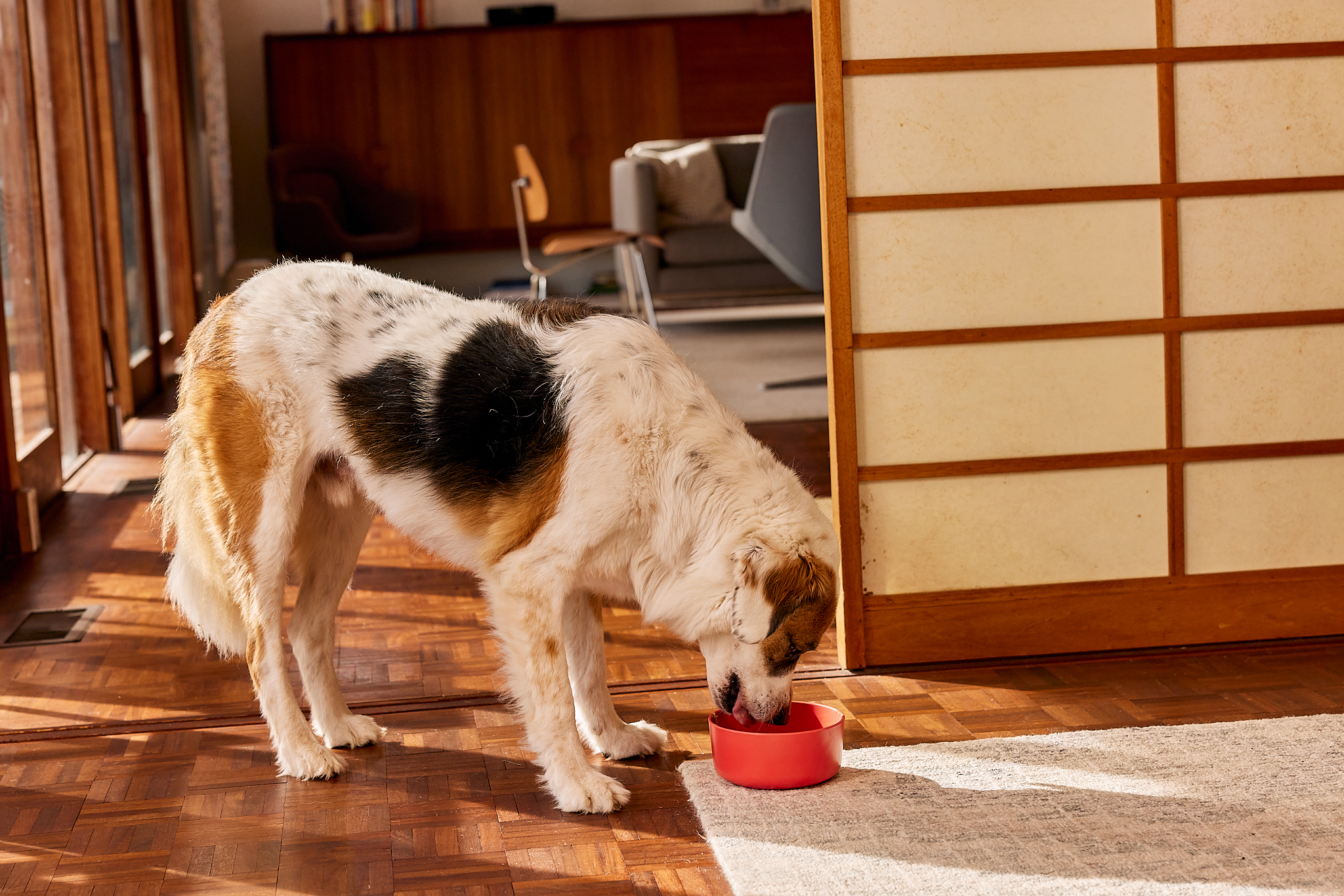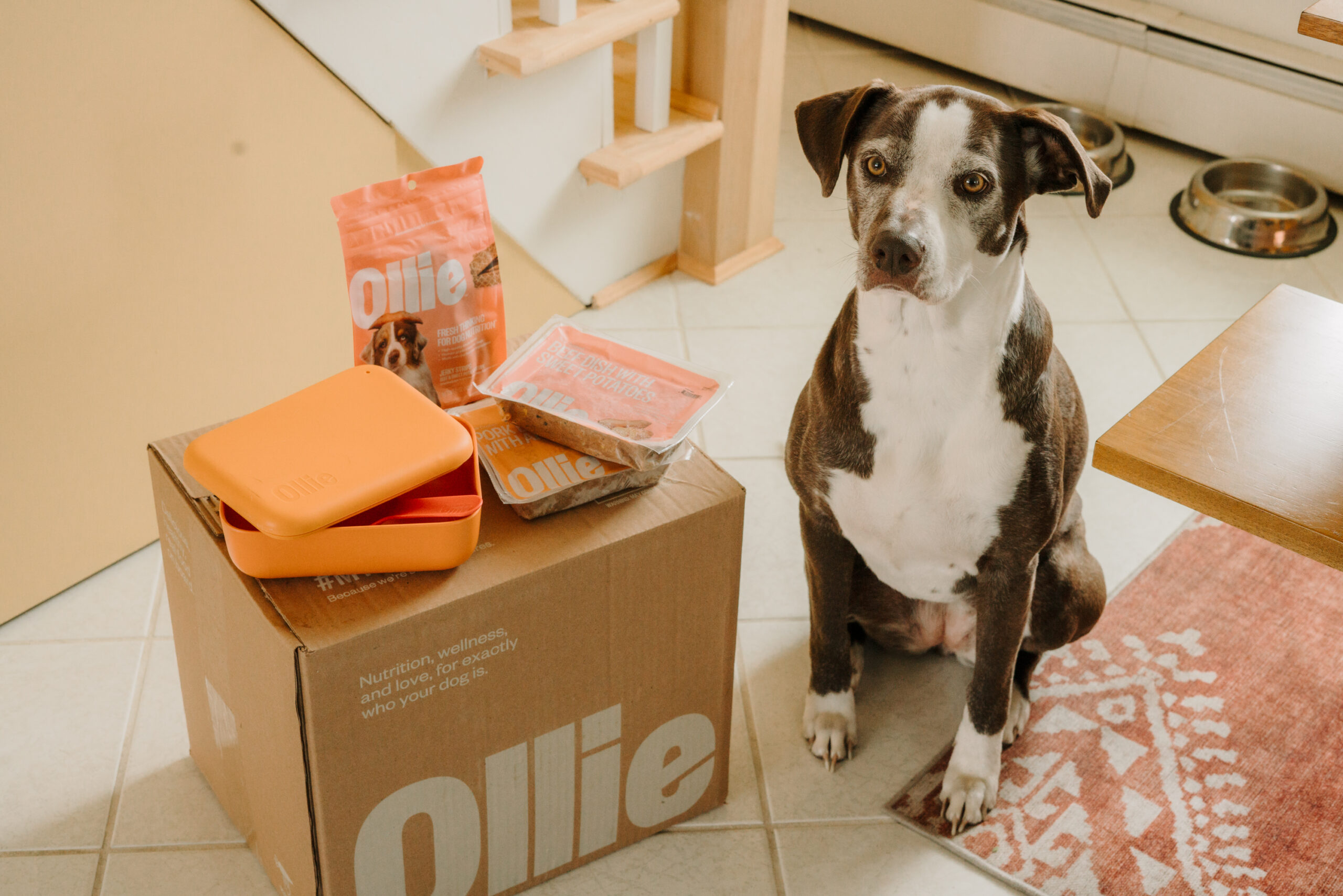Hey Ollie blog readers! We’re offering you an exclusive 60% OFF your starter box! Try now!
You’re sitting on the couch, your dog’s curled up at your feet, and then—scratch, scratch, shake. Again. And again. Suddenly, your dog’s scratching their ears more than they’re doing anything else. Sound familiar?
If your dog has itchy ears, you’re not alone. It’s one of the most common reasons pet parents end up at the vet. Sometimes it’s a quick fix, like a little bit of dirt or water trapped after a bath. Other times, it could be a sign of something more going on—like an infection, allergies, or even ear mites.
The good news? Once you know what’s causing it, there are plenty of ways to help your pup feel better fast.
Common Signs of Itchy Ears in Dogs
Not all ear scratching is a big deal. Dogs groom themselves with their paws all the time. But if your dog is constantly scratching, or if they’re acting uncomfortable, that’s a sign to pay attention.
Here’s what to look for:
- Frequent scratching around one or both ears
- Head shaking, sometimes with force
- Redness, swelling, or visible irritation
- Odor coming from the ears
- Discharge—brown, yellow, or waxy buildup
- Whimpering when you touch the ear
Some dogs may also tilt their head to one side or rub their ears along furniture or the carpet. If you’re noticing any combo of these symptoms, it’s time to dig a little deeper (not literally—we’ll get to proper ear cleaning soon).
Why Your Dog Has Itchy Ears: Most Common Causes
There are a few usual suspects behind canine itchy ears. Some are simple, like a little dirt. Others can lead to recurring problems if not treated. Here’s a breakdown of what might be going on:
Ear Mites
These tiny parasites are more common in puppies but can affect dogs of any age. They live in the ear canal and feed on skin oils and wax. If your dog has itchy ears and you notice dark, crumbly debris that looks like coffee grounds, mites might be the culprit. They’re highly irritating and contagious, so you’ll want to get your vet involved for treatment.
Allergies (Food or Environmental)
Allergies are one of the top reasons dogs develop ear issues. Dogs can be sensitive to common proteins like chicken or beef, or environmental triggers like pollen, dust, and mold. When a dog’s immune system reacts to these allergens, inflammation and excess wax production in the ears can follow. If your dog has recurring itchy ears or frequent ear infections, allergies might be to blame.
Our fresh food recipes are crafted with limited, high-quality ingredients and no fillers—an important step if food sensitivities are contributing to your dog’s ear irritation.
Yeast or Bacterial Infections
Warm, moist environments make the perfect breeding ground for yeast and bacteria. If your dog’s ears smell funky or you see thick discharge, this could be what’s going on. Infections often happen after swimming or bathing, especially in dogs with floppy ears that trap moisture. Left untreated, these infections can get worse and become painful.
Foreign Bodies
Grass seeds, dirt, or even a small bug can find their way into your dog’s ear during a walk or play session. If your dog suddenly starts pawing at one ear or tilts their head a lot, there might be something stuck inside. A vet can take a quick look and remove it safely.
Moisture or Injury
Dogs who love swimming or get frequent baths might be more prone to ear irritation from trapped water. And dogs who scratch too hard can actually injure the sensitive skin in their ears, creating a cycle of inflammation and more scratching.
Knowing what’s behind your dog’s itchy ears is key to choosing the right solution. Now let’s talk about what you can do to help them feel better.
How to Treat Dog’s Itchy Ears at Home (Safely)
If your dog’s symptoms are mild and you’re not seeing signs of infection or injury, you might be able to help them feel better at home. But first, a quick note—always check with your vet before starting treatment, especially if it’s your dog’s first time having ear issues.
Here are a few safe ways to manage mild ear irritation at home:
- Clean the outer ear gently using a soft cloth or cotton ball and a vet-approved ear cleaner. Never use cotton swabs inside the ear canal.
- Dry your dog’s ears thoroughly after baths or swims to prevent moisture buildup.
- Avoid human products like hydrogen peroxide or alcohol—they can irritate the skin and make things worse.
- Stick to high-quality food that avoids common allergens and artificial fillers. A clean diet can help reduce inflammation from the inside out.
Nutrition plays a huge role in your dog’s overall skin and ear health. At Ollie, we use fresh, whole ingredients that support a healthy immune system and help reduce food-related sensitivities—so your dog can stop scratching and start relaxing.
If symptoms persist or worsen, it’s time to check in with your vet for a more specific treatment plan.
When to See the Vet About Itchy Ears
Sometimes itchy ears are more than just a minor annoyance. If your dog’s scratching becomes nonstop or you notice other changes, it’s a good idea to get a professional opinion.
Here are some signs it’s time to call the vet:
- Your dog’s ears are red, swollen, or warm to the touch
- There’s a strong odor or visible discharge
- They cry out, flinch, or try to pull away when you touch their ears
- Head shaking is constant or forceful
- They’ve had more than one ear infection recently
- Home treatment hasn’t helped after a few days
Your vet may examine your dog’s ears with an otoscope to check for blockages, foreign material, or inflammation. They might take a swab to test for bacteria, yeast, or mites. If allergies are suspected, your vet could recommend an elimination diet or allergy testing to pinpoint the issue.
Catching a problem early can prevent bigger complications down the road—like chronic infections or damage to the ear canal.
How to Prevent Itchy Ears in Dogs
The best treatment is prevention, especially for dogs who’ve had ear problems in the past. Keeping your dog’s ears clean, dry, and healthy doesn’t take much effort, but it goes a long way.
Here’s how to stay ahead of itchy ears:
- Clean ears regularly, but not too often—once a week or every other week is enough for most dogs
- Dry your dog’s ears after swimming or bathing, especially if they have floppy ears or thick fur
- Feed a clean, balanced diet that avoids common allergens and artificial additives
- Watch for seasonal allergies, especially in spring and fall
- Groom regularly, especially for dogs with long hair that can trap moisture or debris near the ears
- Use ear-safe grooming products to avoid irritation
Prevention isn’t just about the ears—it’s about total health. At Ollie, we believe nutrition plays a huge role in keeping dogs itch-free. That’s why we focus on real ingredients and avoid fillers that can trigger inflammation or allergic reactions.
Best Food Support for Dogs with Sensitive Ears
What your dog eats doesn’t just affect their energy and digestion—it can have a huge impact on their skin and ears too. If your dog has itchy ears due to food allergies or chronic inflammation, switching to a simpler, cleaner diet can make a big difference.
Here’s what to look for in food for dogs with sensitive ears:
- Limited ingredients to reduce exposure to potential allergens
- Single animal proteins like lamb, beef, or turkey instead of mixed sources
- No artificial fillers or preservatives, which can trigger immune responses
- Omega-3 fatty acids from ingredients like fish oil or flaxseed to support skin and coat health
- Easily digestible carbs like sweet potatoes instead of corn or wheat
At Ollie, we build every recipe around fresh, whole ingredients that help your dog thrive—from the inside out. Our fresh food plans avoid common allergens like soy, wheat, and artificial preservatives. Plus, our Skin & Coat supplement supports healthy skin with omega-3s and other key nutrients—perfect for pups who struggle with itchy ears and dry skin.
If you suspect your dog’s ears are reacting to something in their food, we can help you take the guesswork out. Our quiz is a quick way to get personalized meal recommendations based on your dog’s needs.
Final Thoughts: Keep Those Ears Happy and Healthy
Itchy ears might seem like a small problem, but for your dog, it can be a major source of discomfort. The good news is that with a little attention, the right nutrition, and some simple routines, you can help keep those ears clean, calm, and itch-free.
Stay consistent with checkups, keep their ears dry, and feed them food that supports their overall health. And if something feels off, don’t wait—your vet is your best partner in keeping your dog feeling great.
If your dog is dealing with itchy ears, now’s a great time to take a closer look at their diet. Try Ollie’s fresh food recipes, made without common allergens or fillers. Take our short quiz to build your custom plan, or explore our Skin & Coat supplement for added support.
Your dog’s ears—and their whole body—will thank you.
Tagged As:

The nutrition your dog needs,
the food they want.

Enjoying our articles? Subscribe our Newsletters and get new articles directly to your inbox
You might also like
4 June 2025
5 MINS READ
How Can Fresh Dog Food Help with Weight Management?
Maintaining a healthy weight is one of the most important aspects of your dog’s overall health and longevity. Being overweight or underweight can result in health complications and conditions that…
23 May 2025
5 MINS READ
Why Fresh Dog Food Makes Happier, Healthier Dogs That Live Longer
Every pup parent wants their dog to live a long, happy life, and the path to a healthier, happier dog starts with what’s in their bowl. Recent research and expert insights reveal that fresh dog …
by Ollie Pets
23 May 2025
8 MINS READ
Why Human-Grade Ingredients Matter for Dogs with Health Issues
For dogs with allergies, sensitive stomachs, or other health concerns, a higher quality of life starts with food made from higher quality ingredients. The right nutrition can make a significant di…
by Ollie Pets







